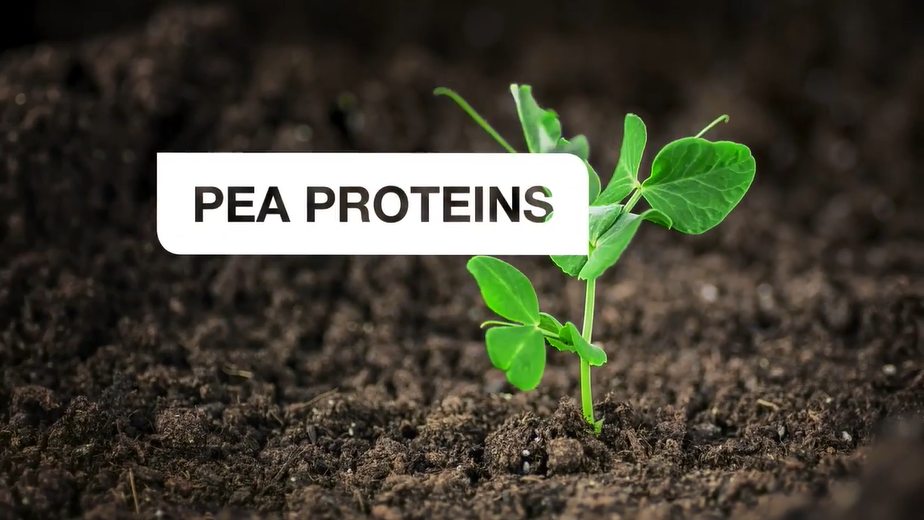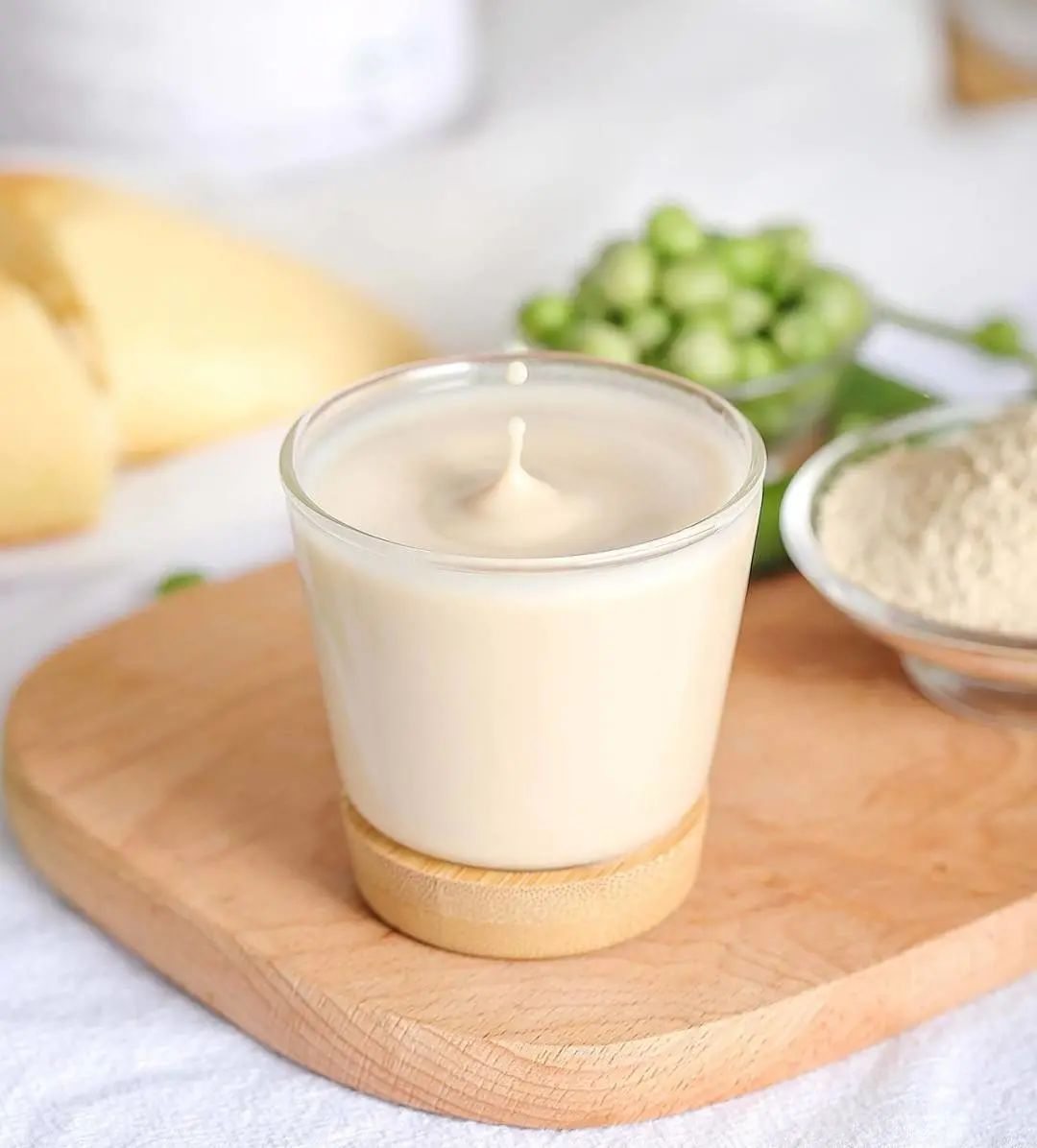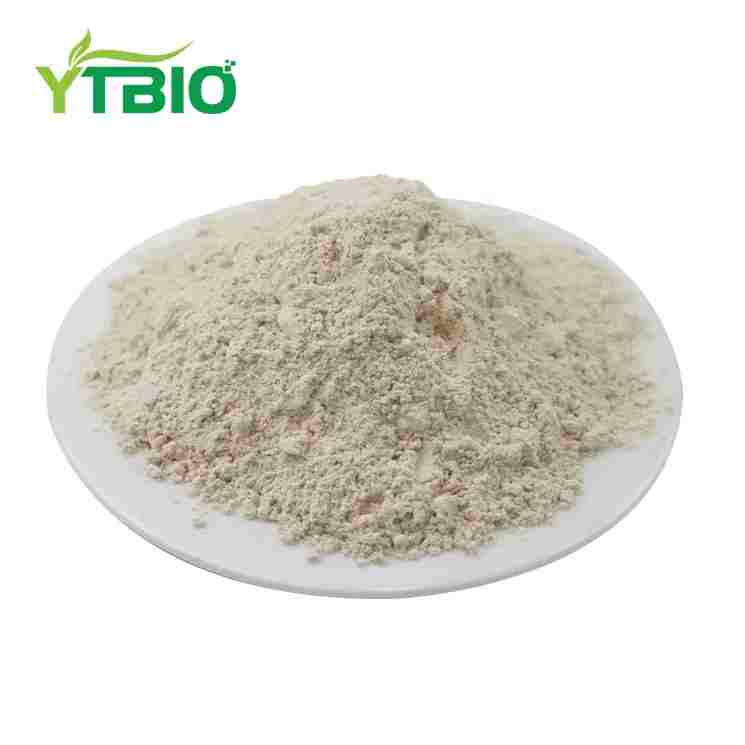Bulk Pea Protein Powder
Product Name: Pea Protein Powder
Botanical Name: Pisum Sativum Linn
Appearance: Yellowish Powder
Content: NLT 80%
Assay: NMT 3%
Shelf Life: 2Years
Function: Provide Energy
Storage conditions: This product should be sealed and shaded, stored in a dry
Certifications:ISO9001,ISO22000,Kosher,Halal,HACCP
Shipping speed:1-3 days
- Fast Delievery
- Quality Assurance
- 24/7 Customer Service
Product Introduction
What is pea protein powder?
Pea protein is an emerging high-quality protein in recent years. It not only has high nutritional value, but also has low toxicity and low allergenicity. The crude protein of yellow pea can be separated and purified to obtain an isolated protein with high protein content and low anti-nutritional factors. After proteolytic treatment of yellow pea, yellow pea polypeptides composed of a variety of polypeptide molecules can be obtained.
Bulk pea protein powder has a high protein content (85%) and contains 8 essential amino acids required by the human body. Yellow pea protein is a valuable protein source and has the potential to replace soy protein and improve the nutritional value of food.
Pea protein has good solubility and is easy to be absorbed by the body. Pea protein does not contain estrogen and is not a major allergen, making it suitable for consumption by all types of people. Pea protein or its hydrolyzed peptides have important health effects, such as antioxidant, blood pressure lowering, anti-inflammatory, cholesterol lowering and intestinal flora regulation.

Nutritional Facts of Pea Protein
Pea protein accounts for 22% to 25% of the dry weight of peas, of which the proportion of albumin is 18% to 25% and the proportion of globulin is 55% to 65%. Albumin contains more tryptophan, lysine, threonine and other sulfur-containing amino acids; globulin contains more arginine, phenylalanine, leucine and isoleucine. The biological value (BV) of pea protein is 48% to 64%, and the efficacy ratio (PER) is 0.6 to 1.2, which is higher than soybean. Overall, the amino acid composition of pea protein is relatively average and close to the standard model recommended by FAO/WHO, so it is a better source of essential amino acids.
What does pea protein do?
01. Food protein source for infants and children
Studies have shown that pea protein extracted from peas has the effect of reducing gastrointestinal gas and improving mineral bioavailability, and is particularly suitable as a food protein source for infants and young children. Davidsson et al. reported that pea protein has low phytic acid content and is poor in iron absorption. It has low impact and does not cause allergic reactions and can be used as an optimal source of protein in infant food formulas. In the study of the anti-adhesion properties of pea bioactive peptides against Helicobacter pylori, it was found that the bioactive peptides isolated from yellow peas have good anti-adhesion capabilities and can be used as functional ingredients to resist Helicobacter pylori infection in infants and children. .
02. Antioxidation
Pea protein hydrolyzate has antioxidant properties. Pea protein hydrolyzate and its isolated components have the ability to inhibit the oxidation of linoleic acid, which can help inhibit the occurrence and development of chronic diseases caused by cell oxidation. Pea oligopeptides can maintain strong antioxidant activity after digestion by pepsin and trypsin.
03. Antibacterial property
In experiments, it was found that the hydrolyzate of pea protein isolate papain has antibacterial effects on both Gram-negative bacteria and Gram-positive bacteria, that is, it has a relatively broad antibacterial spectrum. The ability of pea antimicrobial peptides against Gram-negative bacteria is significantly stronger than that against Gram-positive bacteria, among which the antibacterial effect against Staphylococcus aureus is the most obvious.
04. Promote the growth of probiotics
Study the effect of the enzymatic hydrolyzate of pea protein hydrolyzed by alkaline protease on the growth of 17 common probiotics. Studies have confirmed that pea protein hydrolyzate can significantly promote the growth of probiotics, improve the survival rate of probiotics, and shorten the production time of probiotics.
Glycosylation of pea protein can improve the intestinal environment and promote the growth of probiotics in the intestine, especially bifidobacteria and lactic acid bacteria, prompting probiotics to produce more short-chain fatty acids (lactic acid and vinyl acetate, propionate butyrate), helps maintain intestinal tract.
05. Lower blood pressure, lower cholesterol, and prevent cardiovascular and cerebrovascular diseases
Pea protein is used as raw material for hydrolysis to obtain peptides with (angiotensin-converting enzyme) ACE inhibitory activity. Long-term use can help treat high blood pressure without side effects and has no impact on normal blood pressure.
Studies have shown that compared with casein, pea protein is more effective in reducing plasma cholesterol (61%), glycerides (47%), liver cholesterol (94%), and can also reduce dietary cholesterol by 27%.
Studies have shown that because pea protein is rich in lysine and arginine, cationic peptides can be obtained by hydrolyzing pea protein, which can effectively regulate Ca MKII activity and be used in the prevention of cardiovascular diseases.
06. Improve immunosuppression
Studies have found that after hydrolysis of pea protein, its hydrolyzate can significantly inhibit the production of NO by macrophages, with the amount as high as 20%. Mouse experiments by Zhang Minjia and others have shown that a certain dose of pea peptide has a certain improvement effect on the immune function of CTX-induced immunosuppressive mice.
07. Alleviate insulin resistance
Human experiments have proven that pea peptide has a certain alleviating effect on the formation of insulin resistance in liver cells.

In terms of nutritional value, research shows that compared to soy protein and animal protein, pea protein is richer in typical bean amino acids, vitamins and dietary fiber, and because it does not contain lactose and cholesterol, is low in calories, and has no genetic modification Do not worry, the beany smell is relatively low, and it is not likely to cause allergies. It is suitable for people with lactose intolerance, people with digestive disorders, and people who advocate vegetarianism.
Pea protein can not only meet human demand for high-quality protein. In traditional crop cultivation, excessive use of nitrogen and chemical fertilizers will have many negative impacts on the water environment. Pea can absorb nitrogen from the air and convert it into chemical fertilizers. To fix nitrogen, reduce the amount of nitrogen needed on the farm, keep the water environment clean, reduce carbon emissions, and be environmentally sustainable.
Especially in recent years, as people's dietary concepts continue to improve, research on alternative proteins continues to deepen, and governments of various countries continue to pay attention to the environment and sustainable development of green agriculture, the market demand for pea protein is continuing to grow.
_副本.jpg)
Health benefits of pea protein
1. Pea protein is a complete plant protein
Complete plant protein, also known as complete plant protein, refers to a type of protein that contains a complete range of essential amino acids and can maintain life and promote growth and development. Pea protein contains 8 essential amino acids needed by the human body in sufficient amounts and in appropriate proportions.
2. Bio-fermented plant protein
Shandong Jianyuan Group has developed its own biological fermentation process by improving traditional processes, which can retain almost all the nutrients of pea protein while eliminating the effects of flatulence caused by the characteristics of the beans themselves. Pea protein produced through biological fermentation is more easily accepted by the gastrointestinal tract and improves protein absorption rate.
3.Peas are allergen-free
The eight major food allergens include milk, eggs, fish, crustacean shellfish, tree nuts, wheat, peanuts and soy. These eight food categories or extended foods account for 90% of food allergies. Peas are not classified as a food allergen, which is recognized internationally.
4.Peas are not genetically modified
The genetically modified issue has become a serious issue in recent years. It is impossible to evaluate the quality of genetically modified products based on the available data. The most affected domestically is genetically modified soybeans. Currently, there are no cases of genetically modified peas being grown in the world. The yellow peas produced by Shandong Jianyuan Group are produced in Canada and do not contain any genetically modified ingredients.
5. Pea protein increases satiety and controls weight
High-protein foods can lower ghrelin levels, reduce hunger and increase satiety, thereby reducing food intake. Pea protein suppresses appetite and delays gastric emptying, reducing ghrelin levels by forming more peptides, thereby maintaining a longer feeling of satiety.
6. Pea protein does not contain estrogen
Soy products contain soy isoflavones, a type of estrogen that affects hormone secretion, metabolic biological activity, growth active factors, etc. It is a product that is beneficial to women. Not suitable for male compatriots, especially teenagers. Pea does not contain such hormones and is suitable for a wide range of people. It helps teenagers to supplement protein without affecting their development.
7. Pea protein has high biological value
The biological valence is a biological method for evaluating the nutritional value of protein. It refers to the mass of protein converted into human protein per 100 grams of food source protein. It is determined by a variety of data. Pea protein contains a complete set of amino acids and has high availability, which is higher than soybean protein. It is a high biological value protein.
8. Pea protein can build muscle
Pea protein is rich in essential branched-chain amino acids (valine, isoleucine, and leucine) that play an important role in muscle protein synthesis. Amino acids begin to accumulate in the muscle mass over the next few hours of training, especially weight training. Pea protein intake may maximize muscle mass gains and is comparable to whey protein.
9. Pea protein contains no cholesterol
Cholesterol is also called cholesterol. Cholesterol is widely present in animals. High cholesterol can lead to arteriosclerosis, hemodynamic changes, etc., which can increase the risk of cardiovascular and cerebrovascular diseases. Pea protein is a plant protein, contains no cholesterol, and has low fat content, which is beneficial to human health.
Certificates
YTBIO is committed to providing customers with the highest-quality Pure pea protein powder bulk and services so that every consumer can enjoy natural, healthy, and high-quality food. If you have any inquiries or needs about our products, please feel free to contact us, and we will reply to you as soon as possible.

Package & Shipment


Our Company and Factory

Hot tags:Bulk Pea Protein Powder,Pea Protein Powder,Pea protein,Suppliers, Manufacturers, Factory, Buy, price, for sale, producer, free sample, OEM, ODM, private label, white label.


